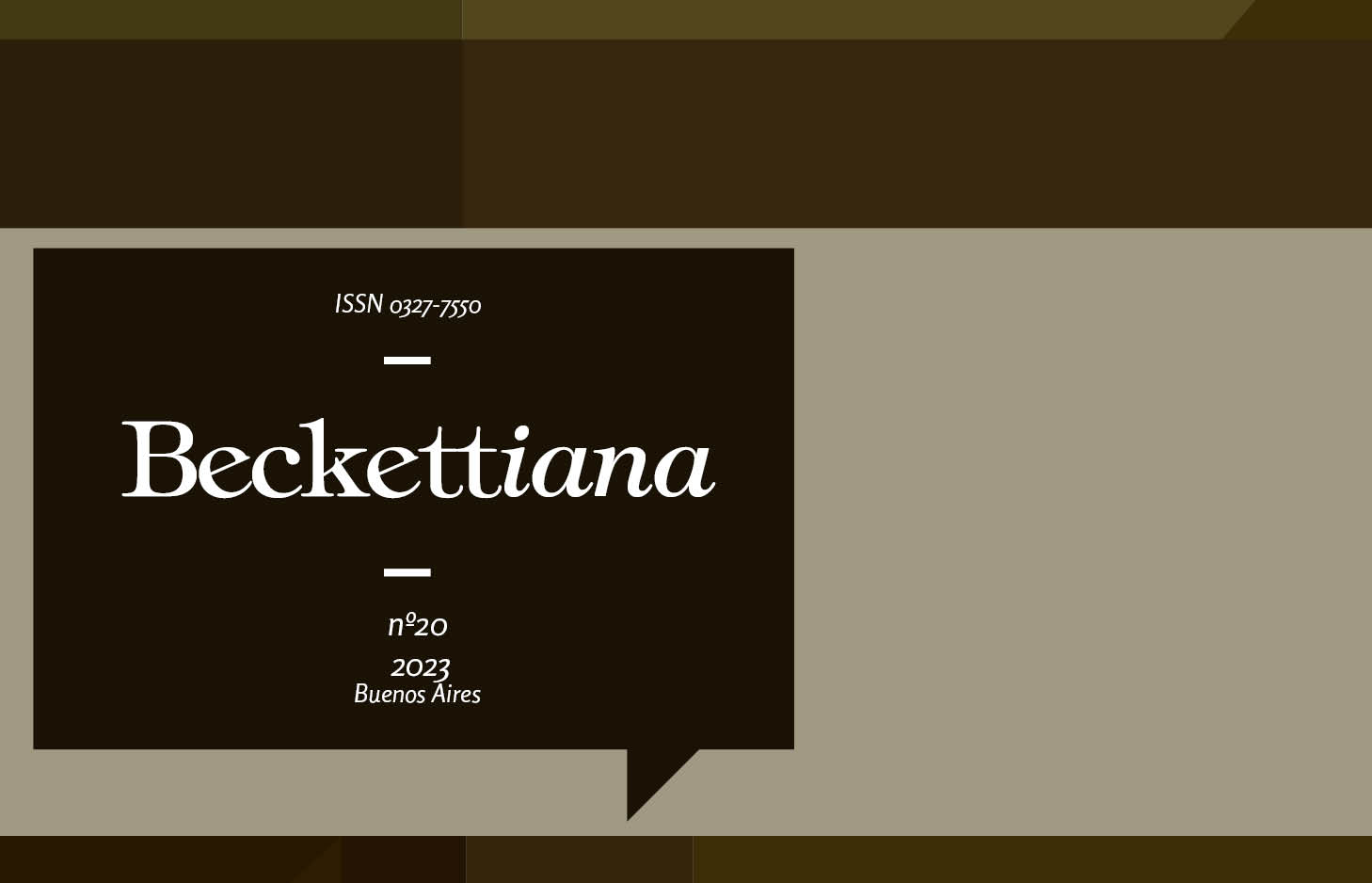“The dog came in the kitchen”, la pausa poética en “Esperando a Godot”
Keywords:
., poetic pause; drama, “Waiting for Godot”
Abstract
When we read Professor Ruby Cohn's commentary on Waiting for Godot, we found her reference to the ballad of the dog. We saw that we were not wrong when our attention turned to this line that begins the second act of the aforementioned play by Samuel Beckett. In the following excerpt, translated into Brazilian Portuguese by Prof. Dr. Fábio Andrade (2001), the University of California professor said: "[...] I don't remember any of my interval impressions, but I still see the leaves on the tree in the second act, like pieces of crepe paper. And I immediately grasp the importance of the ballad of the dog. "This is what the play is about," I must have said to myself, as I re-encountered the now familiar jargon of the two tramps [...]." Questions arose as an attempt to understand exactly this part of the play: Vladimir's speech at the beginning of the second act as the form (poetry) within the form (drama). How it performs a function of a pause. But, not just any pause. It is a pause in the form of poetry, whose popular tone and rhythm produce a pause in the rhythm of this drama. However, the ballad of the dog condenses the depth of argument embedded in the expression of "nothing to do" that runs through the entire play and hits us like "a punch in the stomach." Thus, observing the silences and pauses that are in the architecture of the mentioned Beckettian drama, we consider that the short poem "The dog came in the kitchen" is a poetic pause, not only because of its form, but also because it occupies a position of pause within the rhythm of EG , from which the movement that takes place is the search for primordial unity, it is the search for the meaning of being and existing in a world torn by war and everything horrible that remained from it. In this context, we take into consideration the construction of pauses in EG, as found in the 1954 edition by the author (Grove Press), the references to pauses in the montages made by Beckett, as found in the edition of The Theatrical Notebooks of Samuel Beckett, edited by James Knowlson and Douglad Mc Millan (Grove Press New York, 2019), Fábio de Souza Andrade (2001), Ruby Cohn (1997), among others.Downloads
Download data is not yet available.
References
.
Published
2023-12-27
How to Cite
Cerqueira, T. C. D. (2023). “The dog came in the kitchen”, la pausa poética en “Esperando a Godot”. Beckettiana, (20). https://doi.org/10.34096/beckettiana.n20.13906
Issue
Section
Artículos del VII Congreso de la Samuel Beckett Society – Buenos Aires 2022
Copyright (c) 2023 Beckettiana

This work is licensed under a Creative Commons Attribution-ShareAlike 4.0 International License.








